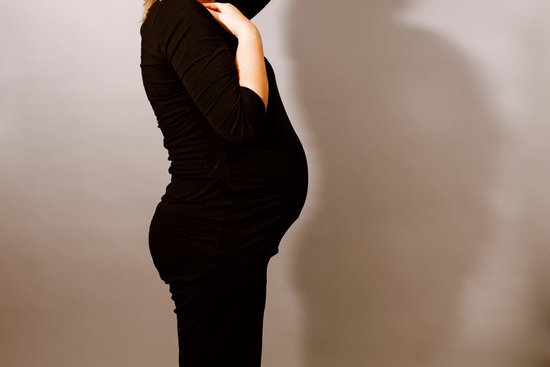Stevia, a natural sweetener derived from the leaves of the Stevia rebaudiana plant, has gained popularity in recent years as a sugar substitute. However, the question on many pregnant women’s minds is: is stevia safe during pregnancy? In this article, we will explore the safety of consuming Stevia while expecting and provide insights from health professionals on its use.
Stevia is known for being a zero-calorie, plant-based alternative to sugar that can be up to 200 times sweeter. Its composition includes glycosides that contribute to its sweet taste without affecting blood sugar levels. This makes it an attractive option for individuals looking to manage their weight or blood sugar levels, including pregnant women who may be more conscious of their dietary choices.
While there are potential benefits of using Stevia during pregnancy, such as reducing overall sugar intake and managing gestational diabetes, it is essential to consider the risks and possible side effects. Some studies suggest that high doses of Stevia could have a contraceptive effect or impact fetal development in animal studies. Therefore, further research is needed to determine its safety for pregnant women.
What Is Stevia and Its Composition
Stevia is a natural sweetener derived from the leaves of the Stevia rebaudiana plant, native to South America. It has gained popularity as a sugar substitute due to its intense sweetness without adding calories.
The primary compounds responsible for its sweet taste are steviol glycosides, such as stevioside and rebaudioside A. These compounds are much sweeter than sugar but do not affect blood glucose levels, making Stevia an attractive option for those managing diabetes or looking to reduce their sugar intake.
Stevia is considered safe by many health organizations, including the Food and Drug Administration (FDA), when consumed in moderation. However, concerns may arise about its safety during pregnancy. Research on the topic is still ongoing, but current evidence suggests that moderate consumption of steviol glycosides is unlikely to pose risks to pregnant women or their babies. Nonetheless, it’s essential for expectant mothers to consult with their healthcare provider before incorporating Stevia into their diet during pregnancy.
While some animal studies have raised potential concerns about Stevia’s impact on fertility and pregnancy outcomes, human studies have shown conflicting results. Some research suggests that high doses of steviol glycosides could potentially lead to adverse effects on pregnancy, while others indicate no harm with moderate consumption levels.
As a precaution, pregnant women are advised not to exceed the acceptable daily intake level established by regulatory agencies like the FDA and the European Food Safety Authority (EFSA). Be sure to read food labels carefully and choose reputable brands when selecting Stevia products while pregnant.
| Stevia Safety Concerns During Pregnancy | Relevant Information |
|---|---|
| Potential risks of high doses | Human studies show conflicting results |
| Acceptable daily intake levels | Regulatory agencies provide guidelines |
| Consulting healthcare provider | Important before using Stevia during pregnancy |
Benefits of Using Stevia During Pregnancy
Stevia, a natural sweetener derived from the leaves of the Stevia rebaudiana plant, has gained popularity as a sugar substitute due to its zero-calorie content and low glycemic index. Its sweetness comes from compounds called steviol glycosides, which are much sweeter than regular sugar but do not affect blood sugar levels. This makes it an attractive option for pregnant women looking to satisfy their sweet tooth without compromising their health or that of their baby.
Rich in Antioxidants
One of the key benefits of using Stevia during pregnancy is its high antioxidant content. Antioxidants help protect cells from damage caused by free radicals and oxidative stress, which can have harmful effects on both the mother and the developing fetus. By incorporating Stevia into their diet, pregnant women can boost their antioxidant intake and support overall health during this crucial period.
May Aid in Blood Sugar Control
Maintaining stable blood sugar levels is especially important during pregnancy to prevent complications such as gestational diabetes. Stevia’s ability to sweeten food and beverages without causing spikes in blood glucose is stevia safe during pregnancy makes it a valuable tool for managing sugar intake. By choosing Stevia as a natural alternative to sugar, pregnant women can reduce their risk of elevated blood sugar levels while still enjoying the sweetness they crave.
Lowers Caloric Intake
Pregnant women often need to be mindful of their caloric intake to prevent excessive weight gain and associated health issues. Since Stevia is virtually calorie-free, it allows expectant mothers to indulge in sweet treats without adding extra calories to their diet. This can help them maintain a healthy weight throughout pregnancy and support optimal maternal and fetal health.
Risks and Potential Side Effects of Consuming Stevia While Pregnant
During pregnancy, it is essential for expectant mothers to be cautious about the food and beverages they consume. When it comes to using stevia as a sweetener during pregnancy, there are some risks and potential side effects to consider. While stevia is generally considered safe for most people, including pregnant women, it is crucial to be aware of its possible effects on both the mother and the developing fetus.
Some studies suggest that high doses of stevia could potentially lead to decreased fertility or increased risk of miscarriage in animal studies. However, more research is needed to determine if similar effects occur in humans. Additionally, consuming large amounts of stevia might cause digestive issues such as bloating, gas, or diarrhea in some individuals, which can be particularly uncomfortable during pregnancy when digestive problems are already common.
Health professionals recommend pregnant women limit their intake of stevia and opt for moderation when using it as a sweetener. It is important to consult with a healthcare provider before adding any new substances to your diet during pregnancy. By being mindful of your stevia consumption and listening to your body’s reactions, you can enjoy the sweetness it offers while minimizing any potential risks.
| Risks and Potential Side Effects | Notes |
|---|---|
| Decreased fertility or risk of miscarriage | More research needed in human studies |
| Digestive issues | Bloating, gas, diarrhea |
Research and Studies on the Safety of Stevia During Pregnancy
Studies on Stevia Consumption During Pregnancy
Numerous studies have been conducted to determine the safety of consuming Stevia during pregnancy. One study published in the Journal of Toxicological Sciences found that Stevia did not have any adverse effects on pregnancy outcomes or fetal development when consumed in moderation.
Another study, published in the Food and Chemical Toxicology journal, concluded that Stevia is safe for consumption during pregnancy and does not pose a risk to maternal or fetal health. These studies provide reassurance to pregnant women who are considering using Stevia as a sweetener.
Potential Risks and Concerns
While most research indicates that Stevia is safe for pregnant women, some potential risks and concerns should still be considered. It is important to note that high doses of Stevia may have a laxative effect, which could lead to digestive issues such as diarrhea.
Additionally, some experts suggest avoiding certain sweeteners, including artificial sweeteners like aspartame, saccharin, and sucralose, during pregnancy due to potential risks. As always, it is best to consult with your healthcare provider before making any significant changes to your diet during pregnancy.
Overall Safety Recommendations
Based on current research and studies, many health professionals agree that moderate consumption of Stevia is generally considered safe for pregnant women. However, it is recommended to use caution and avoid consuming large quantities of this sweetener.
Pregnant women should also be mindful of any potential side effects or reactions when introducing Stevia into their diet. If you have any concerns or questions about incorporating Stevia into your pregnancy diet, it is best to seek guidance from a healthcare provider to ensure the safety and well-being of both you and your baby.
Recommendations From Health Professionals Regarding Stevia Consumption During Pregnancy
During pregnancy, many women may wonder about the safety of consuming certain foods or ingredients, including sweeteners like Stevia. Health professionals often provide recommendations on the use of Stevia during pregnancy to help expecting mothers make informed choices for their health and that of their unborn child. Here are some guidelines from experts regarding the consumption of Stevia during pregnancy:
- Consult with Your Healthcare Provider: It is always recommended to consult with your healthcare provider before introducing any new food or ingredient into your diet during pregnancy. This includes discussing the use of Stevia as a sweetener.
- Limit Intake: While Stevia is generally considered safe for consumption, it is important to use it in moderation during pregnancy. Excessive intake of any sweetener, including Stevia, may not be beneficial for overall health.
- Choose Trusted Brands: When using Stevia as a sweetener during pregnancy, opt for reputable brands that offer pure Stevia extracts without added fillers or chemicals. This can help ensure you are consuming a high-quality product.
When considering the use of Stevia during pregnancy, it is important to understand that individual reactions may vary. Some women may tolerate Stevia well while others may experience digestive discomfort or other side effects. Monitoring your own body’s response is key to determining whether Stevia is a suitable option for you during this special time.
Remember, maintaining a balanced and nutritious diet is essential for a healthy pregnancy. If you have any concerns about incorporating Stevia into your diet while pregnant, do not hesitate to seek guidance from your healthcare provider. They can provide personalized advice based on your medical history and dietary needs in order to support a safe and healthy pregnancy journey.
Tips for Safely Using Stevia During Pregnancy
During pregnancy, it is important to be cautious about the foods and beverages consumed to ensure the safety of both the mother and the developing baby. When it comes to sweetening options, many women wonder if Stevia is a safe choice. Given its increasing popularity as a natural alternative to sugar, it is essential to understand how to safely use Stevia during pregnancy.
Listed below are some tips for safely using Stevia during pregnancy:
- Consult with your healthcare provider: Before incorporating Stevia into your diet during pregnancy, it is advisable to consult with your healthcare provider or obstetrician. They can provide personalized advice based on your health condition and individual needs.
- Choose natural and pure Stevia products: Opt for natural Stevia products that do not contain any artificial additives or fillers. Pure Stevia extract is considered safer than processed versions that may have additional ingredients.
- Monitor your intake: While Stevia is generally recognized as safe by regulatory authorities, moderation is key. It is recommended to consume Stevia in moderate amounts during pregnancy and avoid excessive use.
Taking these precautions can help ensure that you are safely using Stevia while pregnant. Additionally, staying informed about the latest research and guidance from health professionals is crucial for making informed decisions about sweeteners during this special time.
Incorporating Stevia into your diet in a safe and responsible manner with guidance from healthcare providers can potentially benefit pregnant women looking for alternatives to sugar without compromising their health or their baby’s well-being. Ultimately, being mindful of the type and amount of sweeteners consumed can contribute to a healthy pregnancy journey.
Alternatives to Stevia for Pregnant Women Looking to Sweeten Their Food and Beverages
In conclusion, when it comes to the question “Is Stevia Safe During Pregnancy,” the verdict seems to be that moderate consumption of Stevia is generally considered safe for pregnant women. While there are debates and ongoing research regarding its safety during pregnancy, many health professionals agree that it can be a suitable alternative to traditional sugar for those looking to manage their blood sugar levels or reduce caloric intake during pregnancy.
It is important for pregnant women to be aware of the potential risks and side effects associated with consuming Stevia while expecting. Some studies have suggested that high doses of Stevia could potentially have negative effects on pregnancy outcomes, so it is crucial to consult with a healthcare provider before incorporating Stevia into your diet during pregnancy.
Frequently Asked Questions
Is Stevia Okay While Pregnant?
Stevia is generally considered safe for consumption during pregnancy, but it is still recommended to consult with a healthcare provider before using it regularly. Some studies suggest that consuming moderate amounts of stevia during pregnancy does not pose any significant risks.
Who Should Not Use Stevia?
Individuals who have allergies or sensitivities to stevia should avoid using it. Additionally, people with certain medical conditions, such as low blood pressure or hypoglycemia, should be cautious when using stevia as it can potentially affect blood sugar levels. It is always best to seek advice from a healthcare professional before incorporating stevia into your diet.
Is It Safe for Babies to Eat Stevia?
While occasional exposure to stevia is unlikely to cause harm, it is generally not recommended for babies to consume large amounts of stevia since their bodies are still developing and more susceptible to potential side effects. It’s best for parents to limit their baby’s intake of sweeteners and focus on providing a balanced diet rich in nutrients instead.

Welcome to my fertility blog. This is a space where I will be sharing my experiences as I navigate through the world of fertility treatments, as well as provide information and resources about fertility and pregnancy.





